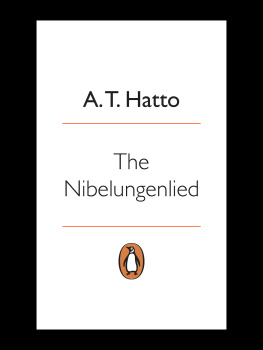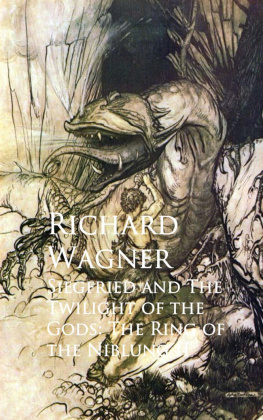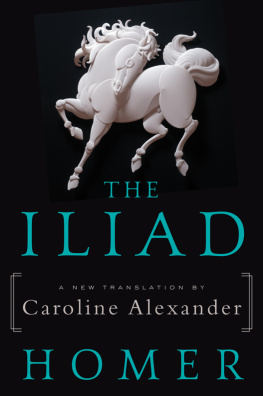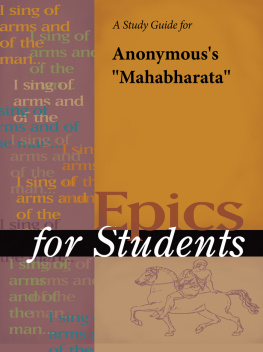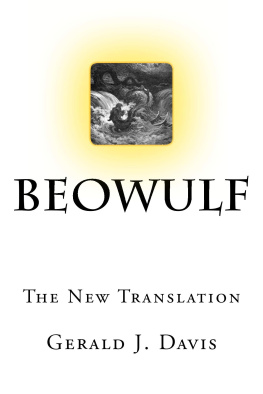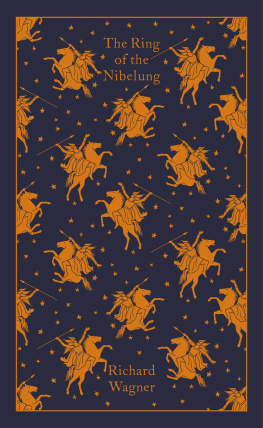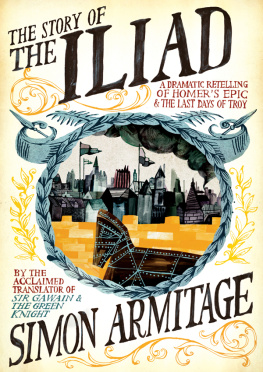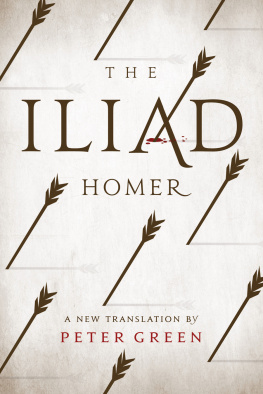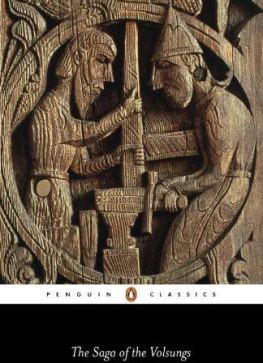A RTHUR T HOMAS H ATTO (b. 1910) was Head of the Department of German, Queen Mary College, University of London, from 1938 until his retirement in 1977, and was Professor of German Language and Literature at the same university from 1953 to 1977. He is now Professor Emeritus in German in the University of London. He was assistant for English at the University of Berne (19324), and during the Second World War worked in the Foreign Office (193945). From 1960 to 1977 he was a Governor of the School of Oriental and African Studies, University of London, where in 1970 he gave the Foundation Lecture, with the tide Shamanism and Epic Poetry in Northern Asia, and was elected an Honorary Fellow. In 1984 he was elected an External Member of Professor Walther Heissigs Central Asia Seminar at the University of Bonn. His other publications include The Memorial Feast for Kkty khan a Kirghiz epic, edited, translated and with a commentary; The Manas of W. Radhff, a new edition, with new translation and commentary of Kirghiz epics; and Towards an Anatomy of Heroic/Epic Poetry (1989). In 1999 he published The Mohave Heroic Epic of Inyo kutavre in which A. L. Kroebers text is re-appraised. He was elected a Senior Fellow of the British Academy in 1991. His translations for the Penguin Classics are Gottfrieds Tristan and the fragments of Thomass Tristran (together in one volume) and the Nibelungenlied, and with Wolfram von Eschenbachs Parzival, his third volume for the series, he has made available to the English reading public a substantial portion of the finest narrative poetry of the medieval German Golden Age. Professor Hatto is married and has one daughter.
THE NIBELUNGENLIED
TRANSLATED BY
A. T. HATTO
PENGUIN BOOKS
PENGUIN BOOKS
Published by the Penguin Group
Penguin Books Ltd, 80 Strand, London WC2R 0RL, England
Penguin Putnam Inc., 375 Hudson Street, New York, New York 10014, USA
Penguin Books Australia Ltd, 250 Camberwell Road, Camberwell, Victoria 3124, Australia
Penguin Books Canada Ltd, 10 Alcorn Avenue, Toronto, Ontario, Canada M4V 3B2
Penguin Books India (P) Ltd, 11 Community Centre, Panchsheel Park, New Delhi110 017, India
Penguin Books (NZ) Ltd, Cnr Rosedale and Airborne Roads, Albany, Auckland, New Zealand
Penguin Books (South Africa) (Pty) Ltd, 24 Sturdee Avenue, Rosebank 2196, South Africa
Penguin Books Ltd, Registered Offices: 80 Strand, London WC2R 0RL, England
www.penguin.com
This translation first published 1965
Reprinted with trevisions 1969
28
Copyright A. T. Hatto, 1965, 1969
All rights reserved
Except in the United States of America, this book is sold subject to the condition that it shall not, by way of trade or otherwise, be lent, re-sold, hired out, or otherwise circulated without the publishers prior consent in any form of binding or cover other than that in which it is published and without a similar condition including this condition being imposed on the subsequent purchaser
FOREWORD

T HE Nibelungenlied is a heroic epic surpassed only by the Iliad of Homer. It was written at about A.D. 1200 by an unnamed poet, for performance at court in Austria somewhere between Vienna and Passau. In it there culminated a tradition of heroic poetry reaching back to the sixth or fifth century A.D. in the lands of the Germanic peoples, and so well did it succeed in its own age that, for want of copying, all earlier poems on the theme in German were lost for ever. Modern poets and poetasters have often returned to its subject, prominent among them Richard Wagner with his gigantic music drama Der Ring des Nibelungen with which (as with his Parsifal and his Tristanwhatever their merits as modern works of art) he has unfortunately harmed the cause of medieval German poetry by intruding reckless distortions between us and an ancient masterpiece. Thus those who come to the Nibelungenlied from Wagner will be much surprised by what they read in it.
The story which our poem tells is one of murder and of revenge long nourished, and it ends in the destruction of two armies. The avenger is a woman; the avenged her beloved husband; her victims are her brothers and kinsmen. This, in its crudest terms, is the plot: having won the amazonian Queen Brunhild for King Gunther in exchange for Gunthers sister Kriemhild, the mighty King Siegfried is murdered by Gunthers vassal Hagen after a quarrel between the Queens; for which Kriemhild, at long last, avenges him.
The action thus has two crises, of which the first is subordinated to the second, but less emphatically than one would expect in a story of revenge. (In the Japanese Tale of the Forty Seven Baron, for example, the Provocation is dealt with briefly, though firmly.)
Yet despite its two crises,Chapter 25 is an isolated incident) Its actors of the moment are held in the limelight and left godforsaken and alone to work out their own destinies, while all others, even those who were talking and doing but a moment before, are blacked out till required again. But on the margins of light and darkness there is, either present or evoked from the future, a chorus of widows and young women whose inarticulate weeping points to woe, or woe to come. Comparison with the Iliad confirms the markedly linear nature of the plot. For whereas Homer selects but a few days from the whole action of the Rape of Helen and the Siege and Sack of Troy, thereby anticipating the three unities of Greek drama, our poet narrates all significant events from Kriemhilds girlhood till her death as a woman of advanced years. In order to do this, the poet passes over vast lapses of time during which nothing happens and concentrates on brief periods full of incident with peaks of tense dialogue, which in their turn foreshadow modern drama. The poet is able to do this thanks to the strength and directness of his plot, as, step by step, he confronts the implacable wills of his great protagonists, Kriemhild and Hagen. He thus achieves a work the finest moments of which would come through even in pidgin English and positively thrive on the prose of Damon Runyon. Indeed, I once read a gripping essay on the plot of the Nibelungenlied by an undergraduate who knew (or pretended to know) no better than to treat it as a thriller.
The Nibelungenlied, then, should appeal on the one hand to those who have read the Iliad and the Song of Roland with pleasure, and on the other to readers (though scarcely to addicts) of the tougher novels of our day, but also to many in between; and they could enjoy it in English better or worse than mine. Yet a word of warning is due to them. Owing to the weight which the poet gives to the events that lead up to the quarrel of the Queens and the death of Siegfried, the story unfolds slowly at first. Indeed, it begins almost like a fairy tale, with a Princess averse to love and a Prince Charming destined to win her. But at length this crystal casement is shattered, to reveal a stage on which imperious wills, guile, treachery, loyalty of many hues, some chivalry, sublime, tact, and desperate courage, all play their fateful parts.
Queen Mary College, London. July 1962
A.T.H.

